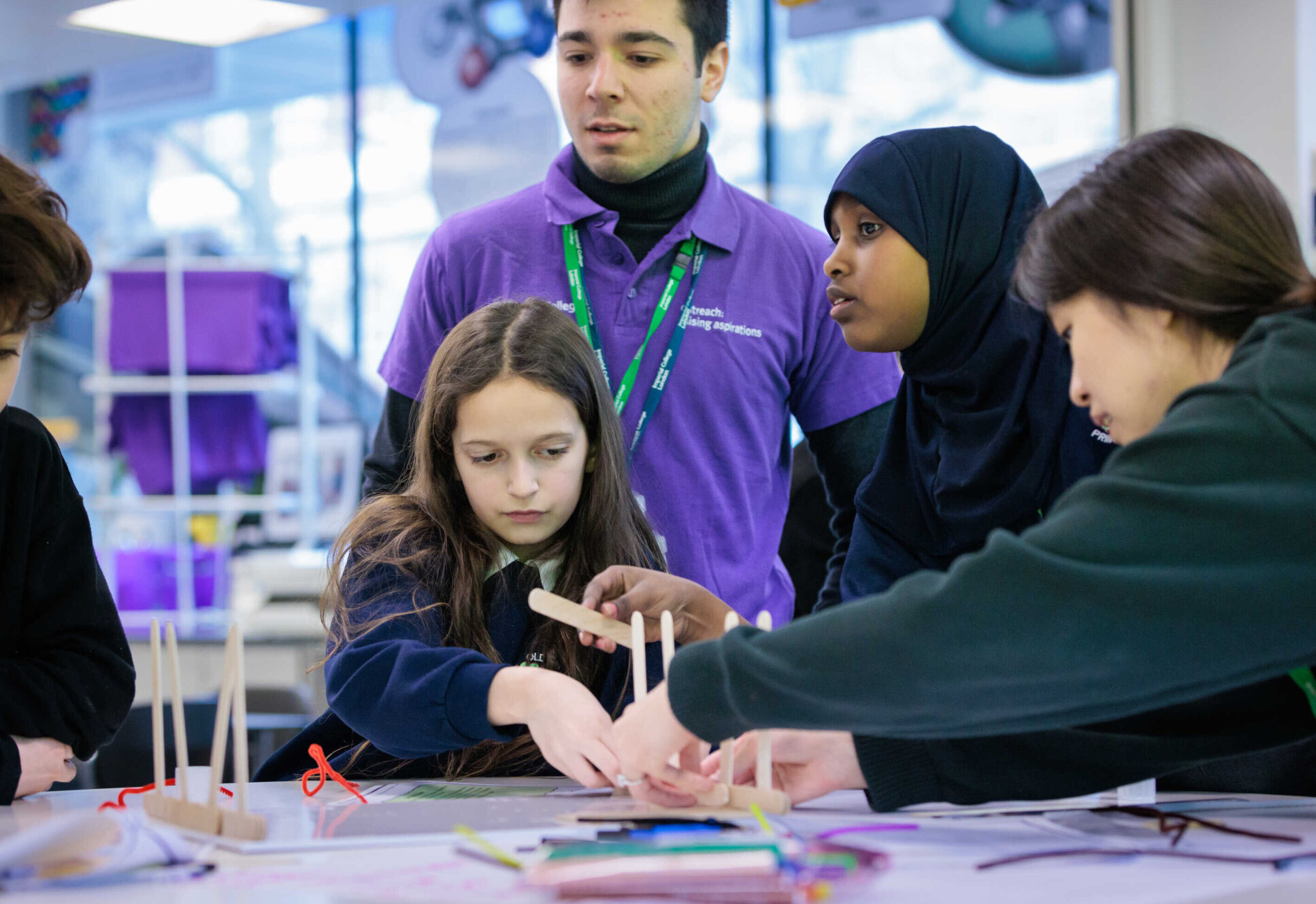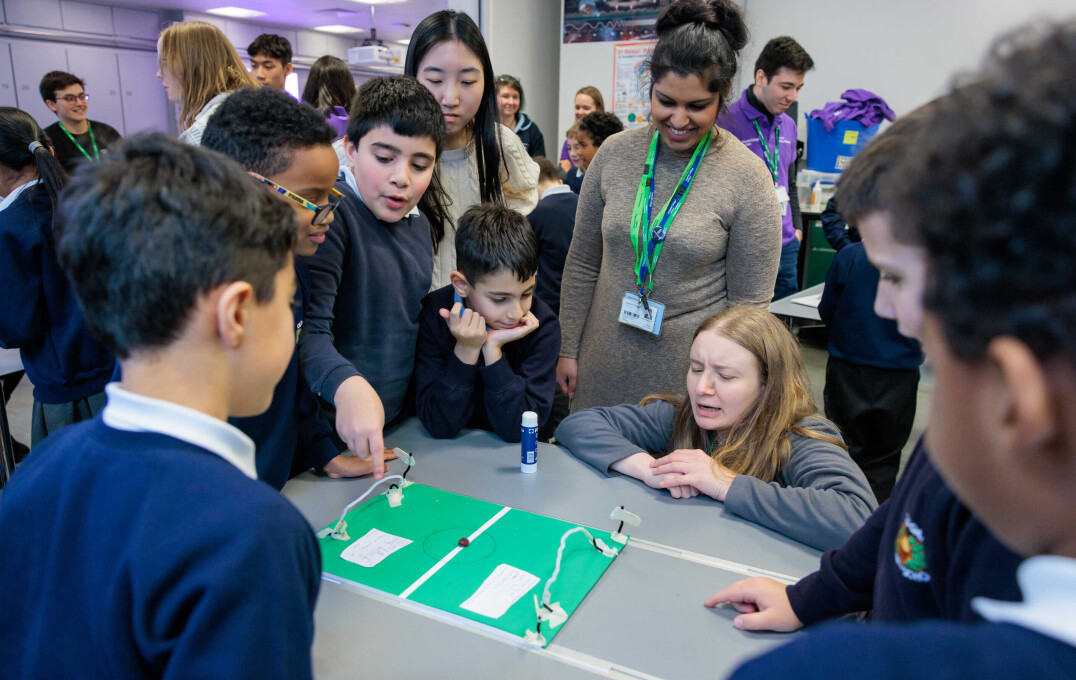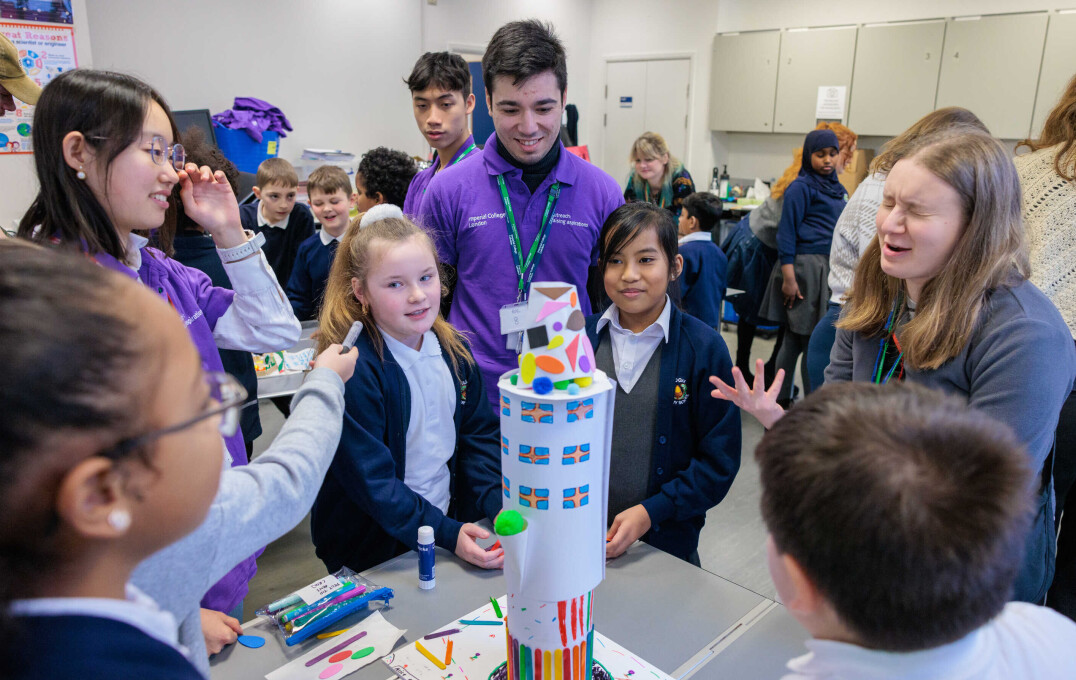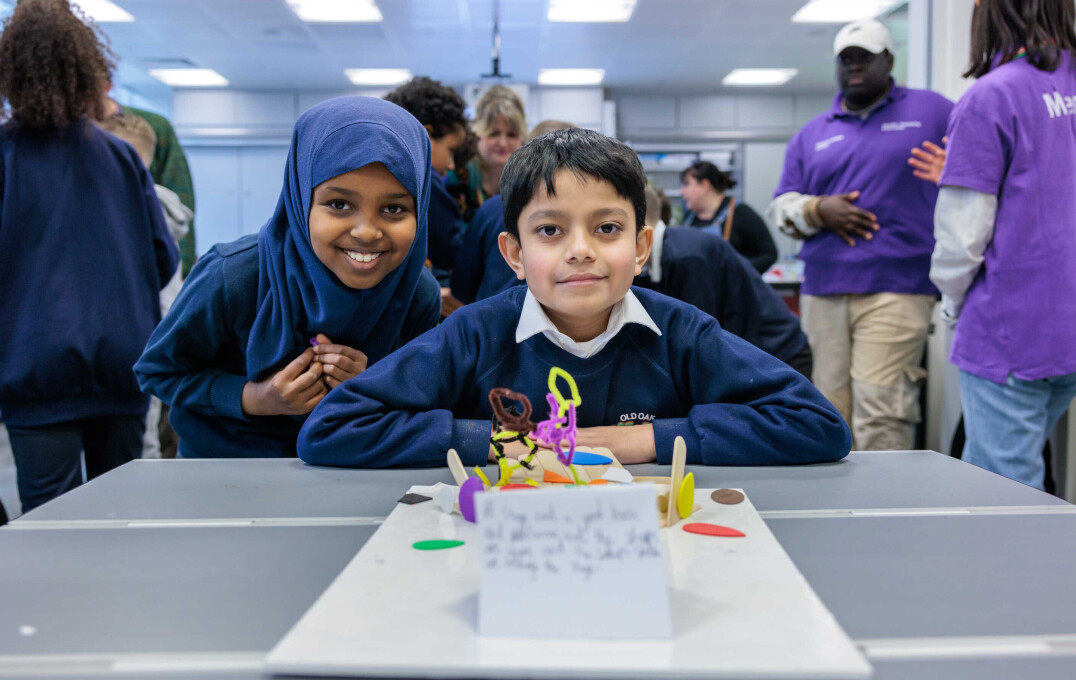Imperial College London Introduces New Programme to Support Successful Foundations in Mathematics
Imperial College London has launched a new Maths Transition programme in White City to support successful maths foundations in pupils.
Does maths play a role in our daily lives?
What do I like and dislike about maths?
How does maths relate to the everyday things around us like food, sport, architecture, art and money?
These were some of the questions Year 5 pupils from Old Oak Primary school discussed when they attended the launch of a new Maths Transition Programme on the 22nd of January at the Wohl Reach Out Lab in South Kensington.
Maths in real life
Often pupils this age will associate maths with tests and worksheets, but won’t make the connection between the things they normally see and do, and how maths is involved. At the Reach Out Lab, the pupils applied their mathematical skills through ideation and design of models for their very own Maths Museum, to represent these real-life applications.
 Student A said: “Today was great, especially when we got to make our own things and show them to other people.”
Student A said: “Today was great, especially when we got to make our own things and show them to other people.”
Teacher A said: “The tasks challenged them to apply what they learnt in school in a completely different setting. The class was buzzing when we got back to school and the students are keen to share what we did in an assembly to the whole school and their parents.”
Maths Transition programme
The Maths Transition programme is organised and delivered by the College’s central Outreach team, and is supported by the Mohn Westlake Foundation. The programme will follow local White City students from Year 5 through to when they enter secondary school.
The Maths Transition programme aims to support pupils to develop strong foundations in maths at primary school, and to support maths progression and attainment at early secondary level.
“Maths is so important in education and life and I hope we can continue to support our pupils to achieve their potential with this programme.”Shreya SivadhassPrimary School Programme Co-ordinator
The national data shows that gaps between disadvantaged pupils and their peers emerge early at primary school, widening through secondary school and impacting on success at GCSE, A-level and beyond. Data from 2022/23 showed that at the end of Key Stage 2, 59% of disadvantaged pupils reached the expected standard in maths compared with 79% of their peers.
Working with pupils to support them in reaching a solid foundation in maths during Key Stage 2 and Key Stage 3 will have a long-lasting impact on their attainment and chance of future success.
The day was described as “fun and enjoyable with lots of hands-on experience,” by the school pupils, and highlights included making model football pitches and chocolate factories to scale. The pupils were thrilled to showcase their creations to the Outreach staff.
Teachers said: “Visiting the South Kensington campus was an excellent opportunity for the children to broaden their horizons. The ambassadors worked well with the children, engaging them in the tasks, prompting and questioning them in a way that made the children feel part of something exciting. The tasks themselves allowed the children to think about Maths in real-life situations, outside the classroom.”
Shreya Sivadhass, Primary School Programme Co-ordinator, said: “It was great to see the pupils excited about maths and listen to so many rich discussions around the value of the subject.
“I believe that motivation and increased engagement are both key factors when it comes to raising attainment. Maths is so important in education and life and I hope we can continue to support our pupils to achieve their potential with this programme.”
The students will attend a further five sessions at school, finishing with a workshop at the Victoria and Albert Museum to end the delivery block.




